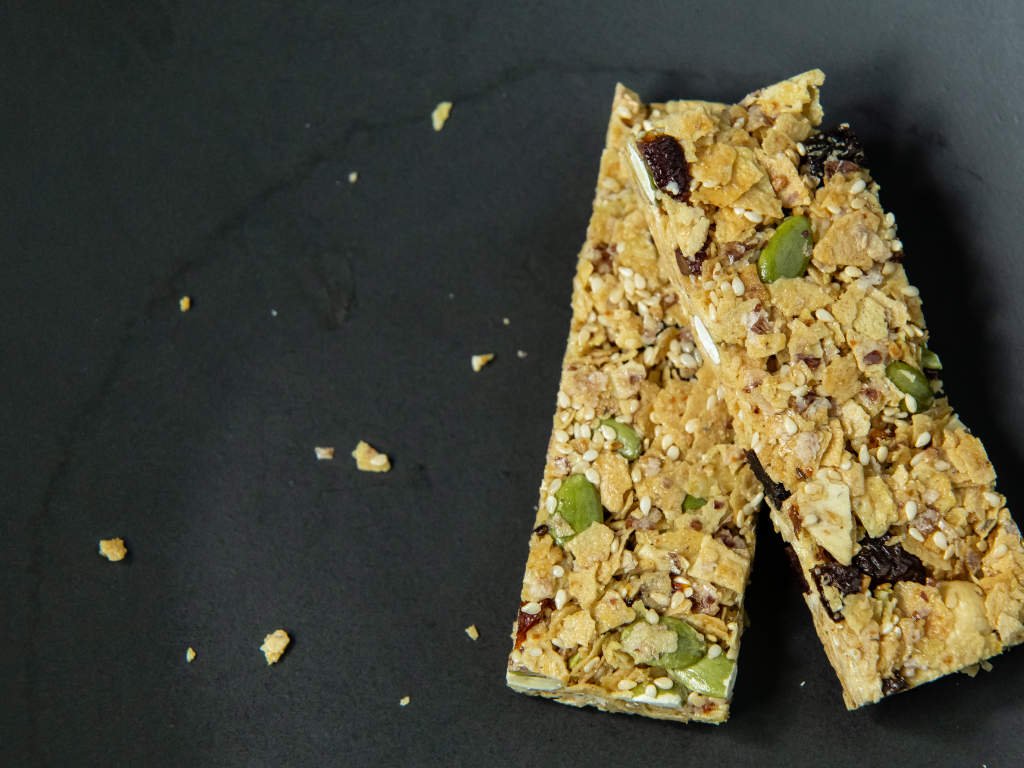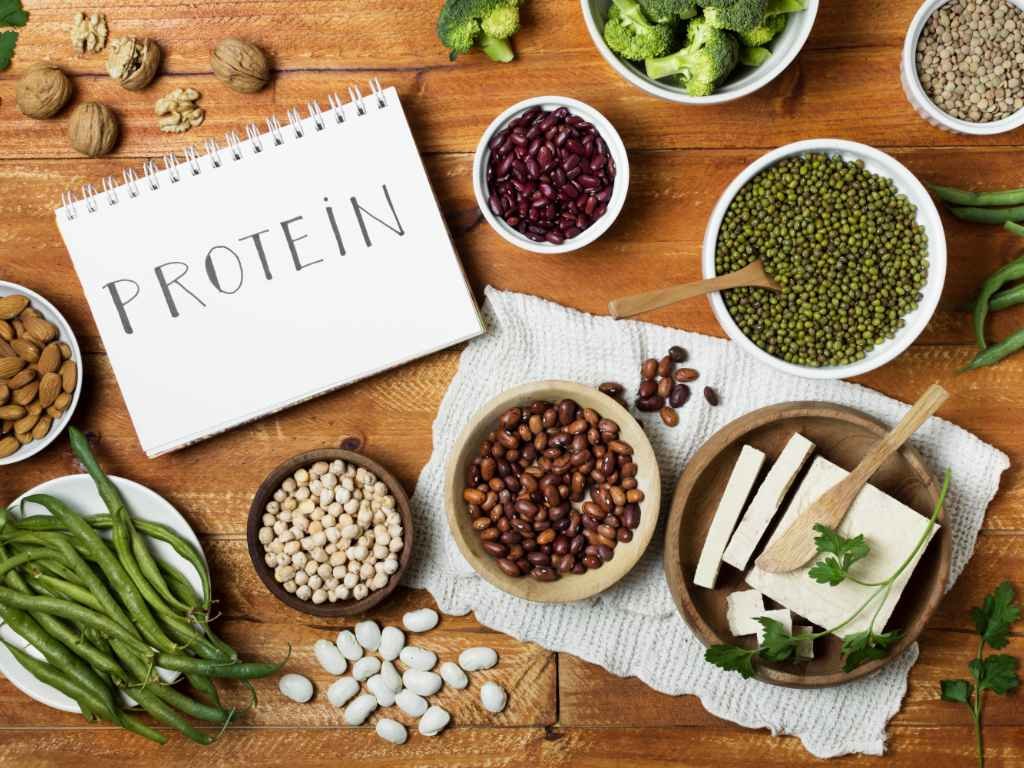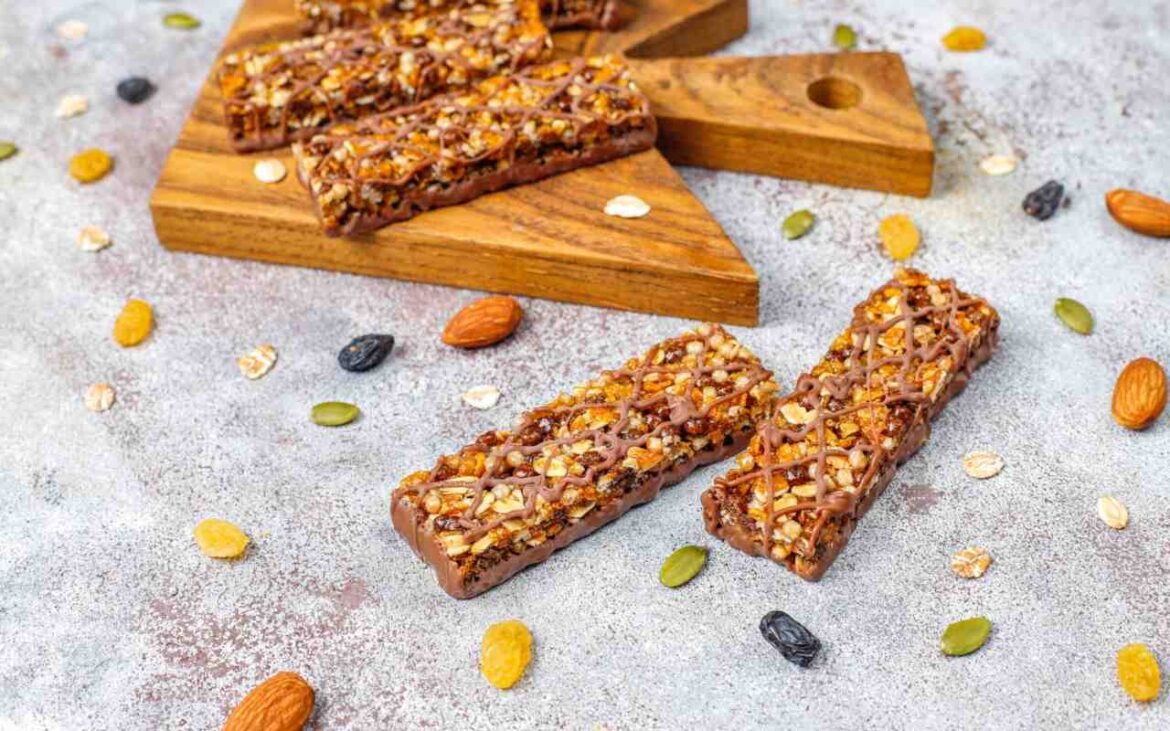Table of Contents
Have you ever found yourself standing in the supplement aisle, staring at rows of protein bars, wondering which ones won’t spike your blood sugar or compromise your plant-based lifestyle? You’re not alone. The search for no sugar vegan protein bars has become increasingly challenging as more people recognize the importance of avoiding added sugars while maintaining their commitment to plant-based nutrition.
The protein bar market has exploded in recent years, but finding options that tick all the boxes—vegan, sugar-free, and actually tasty—can feel like searching for a needle in a haystack. Whether you’re following a ketogenic diet, managing diabetes, or simply trying to reduce your sugar intake, these specialized bars offer a convenient solution that doesn’t require sacrificing your dietary principles or taste preferences.
What Exactly Are No Sugar Vegan Protein Bars?
Let’s break this down simply. No sugar vegan protein bars are exactly what they sound like—protein bars made entirely from plant-based ingredients with zero to minimal added sugars. Unlike traditional protein bars that often rely on whey or casein (dairy proteins) and are loaded with refined sugars, these bars use alternative protein sources like pea, brown rice, or hemp protein.
The “no sugar” part doesn’t mean they’re completely devoid of sweetness. Many use natural alternatives like stevia, monk fruit, or even rely on the natural sweetness from dates or other whole food ingredients. The key difference is that they avoid the blood sugar spikes associated with refined sugars and artificial sweeteners that can leave you crashing an hour later.
These bars have gained popularity among various groups—vegans seeking convenient protein sources, people following low-carb or ketogenic diets, diabetics managing blood sugar levels, and health-conscious individuals looking to reduce their overall sugar intake. They’re particularly appealing because they solve multiple dietary challenges at once.
The Rise of Low Carb Vegan Bars
Low carb vegan bars represent a fascinating intersection of two major dietary trends. Traditional protein bars often pack 20-30 grams of carbohydrates, much of it from added sugars. In contrast, low-carb vegan options typically contain 5-15 grams of net carbs, focusing instead on protein and healthy fats from nuts, seeds, and plant-based oils.
What sets these bars apart from their conventional counterparts is their ingredient philosophy. Instead of relying on cheap fillers and sugar alcohols, quality low-carb vegan bars use whole food ingredients. You’ll find nuts, seeds, coconut oil, and fiber-rich ingredients that provide sustained energy without the rollercoaster effect of high-sugar alternatives.
The weight management benefits are particularly noteworthy. Lower sugar and carbohydrate content promotes more stable energy levels, reduces hunger between meals, and can assist with weight management by limiting those dreaded blood sugar spikes that often lead to increased cravings. Many users report feeling more satisfied and energized throughout the day when they switch from high-sugar bars to these alternatives.

Understanding Sugar Free Protein Bars
The world of sugar free protein bars can be confusing, especially when you start reading ingredient labels. Not all sugar-free bars are created equal, and some rely heavily on sugar alcohols that can cause digestive discomfort or still impact blood sugar levels.
The best sugar-free vegan options use natural sweeteners that have minimal impact on blood glucose. Stevia, derived from the stevia plant, provides sweetness without calories or blood sugar impact. Monk fruit sweetener offers similar benefits with a taste profile that many find more appealing than stevia. Some bars use inulin, a prebiotic fiber that adds mild sweetness while supporting digestive health.
Here’s where many people get surprised—sugar-free doesn’t mean taste-free. Brands like Aloha have mastered the art of creating dessert-like flavors without added sugars. The trick lies in using high-quality cocoa, natural vanilla, and carefully balanced ratios of nuts and seeds that provide inherent richness and complexity.
Top 4 No Sugar Vegan Protein Bars That Actually Taste Good
After extensive research and taste testing, here are the five standout options that deliver on both nutrition and flavor:
1. Aloha Organic – The Whole Food Winner
Aloha takes a whole-food approach to no sugar vegan protein bars, using organic brown rice protein and pumpkin seed protein as their base. With 14 grams of protein and 4-5 grams of naturally occurring sugars (no added sugars), these bars feel more like eating actual food than processed supplements.
Their Oatmeal Chocolate Chip flavor is particularly impressive, incorporating real oats and dark chocolate chips. The bars are also notable for being free from sugar alcohols and artificial sweeteners, relying instead on the natural sweetness from dates and organic coconut. They’re also a great source of iron, making them particularly valuable for plant-based athletes.
2. NuGo Slim – The Budget-Friendly Champion
NuGo Slim bars prove that you don’t need to break the bank for quality keto vegan protein bars. With 16-17 grams of protein and only 2-3 grams of sugar, these bars use a combination of soy and rice protein. Their Crunchy Peanut Butter flavor is particularly popular among those transitioning from traditional protein bars.
The texture is firmer than some alternatives, making them ideal for pre-workout fuel when you need something that won’t weigh you down. The high fiber content (around 12 grams) also makes them surprisingly filling, often replacing a small meal rather than just serving as a snack.
3. GoMacro – The Soft Texture Specialist
GoMacro bars blur the line between protein bars and wholesome snacks. While they contain 12-15 grams of naturally occurring sugars, they add zero refined sugars, instead sweetening with brown rice syrup and coconut nectar. Their 11-12 grams of protein come from brown rice and pea protein.
The texture is notably soft and chewy, making them feel less like typical protein bars and more like homemade energy bars. Their Peanut Butter Chocolate Chip flavor has developed a cult following among plant-based athletes who appreciate the balance of taste and clean ingredients.
4. No Cow – The High-Protein Hero
For those prioritizing protein content above all else, No Cow delivers an impressive 20-22 grams of protein with just 1 gram of sugar. Using brown rice protein, pea protein, and almonds, these bars are designed for serious athletes and those using them as meal replacements.
The texture is denser than other options, which some love and others find challenging. However, the nutritional profile is hard to beat for anyone following a strict ketogenic or very low-carb diet. Their variety of flavors, from Birthday Cake to Chunky Peanut Butter, means you won’t get bored.
The Science Behind Plant Protein Bars No Sugar
Plant protein bars no sugar offer several advantages over their animal-based counterparts beyond just being vegan-friendly. Plant proteins often come packaged with additional nutrients—fiber, minerals, and phytonutrients—that aren’t present in isolated whey or casein proteins.
Pea protein, commonly found in these bars, provides all essential amino acids and is particularly rich in lysine, often limited in other plant proteins. Brown rice protein complements pea protein perfectly, creating a complete amino acid profile that rivals any animal protein source. Hemp protein adds omega-3 fatty acids and additional fiber, while pumpkin seed protein contributes zinc and magnesium.
The fiber content in plant-based bars is typically higher than animal protein bars, which aids in blood sugar stability and promotes satiety. This means you’ll feel full longer and experience fewer cravings throughout the day. Recent research suggests that this combination of plant proteins and fiber can be more effective for weight management than high-protein, low-fiber alternatives.
From a sustainability perspective, choosing plant protein supports more environmentally friendly food production. Plant proteins require significantly less water and land to produce compared to animal proteins, making them an eco-conscious choice that aligns with broader environmental health goals.

Keto Vegan Protein Bars – The Ultimate Dietary Challenge
Creating keto vegan protein bars represents one of the most challenging feats in food science. The ketogenic diet requires high fat, moderate protein, and very low carbohydrates (typically under 20-25 grams net carbs per day), while vegan requirements eliminate all animal products, including the butter, cream, and eggs commonly used in keto products.
Successful keto vegan protein bars achieve this balance through carefully selected ingredients. Coconut oil and MCT oil provide the necessary healthy fats, while nuts and seeds contribute both fats and protein. Fiber-rich ingredients like inulin and chicory root fiber help achieve the desired texture while keeping net carbs low.
The key is understanding net carbs—total carbohydrates minus fiber and certain sugar alcohols. A bar might contain 15 grams of total carbs but only 4-5 grams of net carbs if it’s high in fiber. This makes it possible to enjoy a satisfying protein bar while maintaining ketosis.
Brands like Misfits and No Cow have mastered this balance, creating bars that provide 15-22 grams of protein, 8-12 grams of healthy fats, and under 5 grams of net carbs. They’re perfect for anyone following a ketogenic lifestyle who doesn’t want to compromise their plant-based values.
How to Choose the Right No Sugar Vegan Protein Bar
Selecting the perfect no sugar vegan protein bars depends on your individual goals, taste preferences, and dietary restrictions. Here’s what to consider:
Protein content matters, but context is key. If you’re using bars as post-workout recovery, aim for 15-20 grams of protein. For casual snacking or appetite control, 10-15 grams might be sufficient. Remember, more isn’t always better—your body can only utilize so much protein at once.
Check the ingredient list, not just the nutrition facts. Quality bars will have recognizable ingredients like nuts, seeds, and plant proteins near the top of the list. Avoid bars with long lists of artificial additives or multiple types of sugar alcohols if you have a sensitive digestive system.
Consider your sweetener preferences. Some people love stevia, while others find it has an unpleasant aftertaste. Monk fruit tends to be better tolerated, while allulose provides the most sugar-like experience. If you’re sensitive to sugar alcohols like erythritol or xylitol, look for bars that avoid them entirely.
Think about texture and satisfaction. Dense, chewy bars might be perfect for meal replacement but too heavy for a light snack. Softer, more cookie-like bars might satisfy dessert cravings but not provide the sustained energy needed for athletic performance.
Common Mistakes When Choosing Sugar-Free Options
One of the biggest mistakes people make is assuming all sugar-free bars are automatically healthy. Some sugar-free bars are loaded with artificial ingredients, preservatives, and sugar alcohols that can cause digestive distress. Reading ingredient lists becomes crucial when navigating this market.
Another common error is not considering total carb content. A bar might be “sugar-free” but still contain 25-30 grams of carbohydrates from other sources, which won’t work for anyone following a low-carb lifestyle. Always check both sugar content and total net carbs to ensure the bar fits your dietary goals.
Price comparison can also be tricky in this market. Premium bars often cost $3-4 each, while budget options might be $1-2. However, the protein quality, ingredient sourcing, and taste satisfaction can vary dramatically. Sometimes it’s worth investing in higher-quality options, especially if they replace more expensive meal components.
The Future of Plant-Based Protein Bars
The no sugar vegan protein bar market continues to evolve rapidly. Emerging protein sources like algae, cricket-free insect alternatives, and novel plant proteins are expanding options beyond the traditional pea and rice proteins. Innovative processing techniques are improving texture and taste profiles while maintaining clean ingredient lists.
Personalization is becoming increasingly important, with some companies offering customizable protein bars based on individual dietary needs, taste preferences, and activity levels. This trend toward personalized nutrition could make it easier than ever to find the perfect bar for your specific requirements.
Sustainability considerations are also driving innovation. Companies are exploring packaging alternatives, carbon-neutral ingredient sourcing, and even bars made from upcycled food waste, making these products even more environmentally friendly.
Frequently Asked Questions
Are no sugar vegan protein bars suitable for diabetics?
Most no sugar vegan protein bars are excellent options for diabetics, as they typically have minimal impact on blood glucose levels. However, individual responses can vary, and some sugar alcohols may still affect blood sugar. It’s always best to monitor your blood glucose response when trying new products and consult with your healthcare provider.
Can these bars replace meals?
Higher protein bars (20+ grams) can serve as light meal replacements, especially when paired with a piece of fruit or some nuts. However, they shouldn’t regularly replace balanced meals that provide a wider variety of nutrients, including vitamins and minerals that might be limited in processed bars.
What’s the shelf life of vegan protein bars?
Most commercially produced vegan protein bars have shelf lives of 12-18 months when stored properly. Bars with nuts and seeds may go rancid more quickly if exposed to heat or humidity, so proper storage is important for maintaining both taste and nutritional quality.
Do these bars provide complete proteins?
Many modern vegan protein bars combine multiple protein sources (like pea and rice protein) to create complete amino acid profiles. However, if you’re relying heavily on protein bars, it’s still wise to vary your protein sources throughout the day to ensure optimal amino acid intake.
Making the Switch: Practical Tips
Transitioning to no sugar vegan protein bars can take some adjustment, especially if you’re used to sweeter, traditional bars. Start by trying different brands and flavors to find options you genuinely enjoy. Many people find that their taste preferences adapt over time, and they actually begin to prefer the cleaner taste of unsweetened or naturally sweetened options.
Consider your eating patterns when incorporating these bars. They work particularly well as pre-workout fuel, post-workout recovery snacks, or mid-afternoon energy boosters. Pairing them with hydrating foods like fruit can enhance both satisfaction and nutrient absorption.
Storage matters more with natural ingredient bars. Keep them in cool, dry places, and consider refrigerating them in hot weather to prevent texture changes. Many people actually prefer the firmer texture and enhanced flavors that come with slight chilling.
The journey to finding your perfect no sugar vegan protein bars might take some experimentation, but the benefits—stable energy, clean nutrition, and alignment with your dietary values—make it worth the effort. Whether you’re managing blood sugar, following a plant-based lifestyle, or simply seeking healthier snacking options, these bars provide a convenient solution that doesn’t compromise on taste or nutrition.
Remember, the best protein bar is the one you’ll actually eat consistently. Don’t get too caught up in finding the “perfect” option—focus on finding several good options that fit your lifestyle, preferences, and nutritional goals. Your future self will thank you for making the switch to cleaner, more sustainable protein sources that support both your health and your values.


